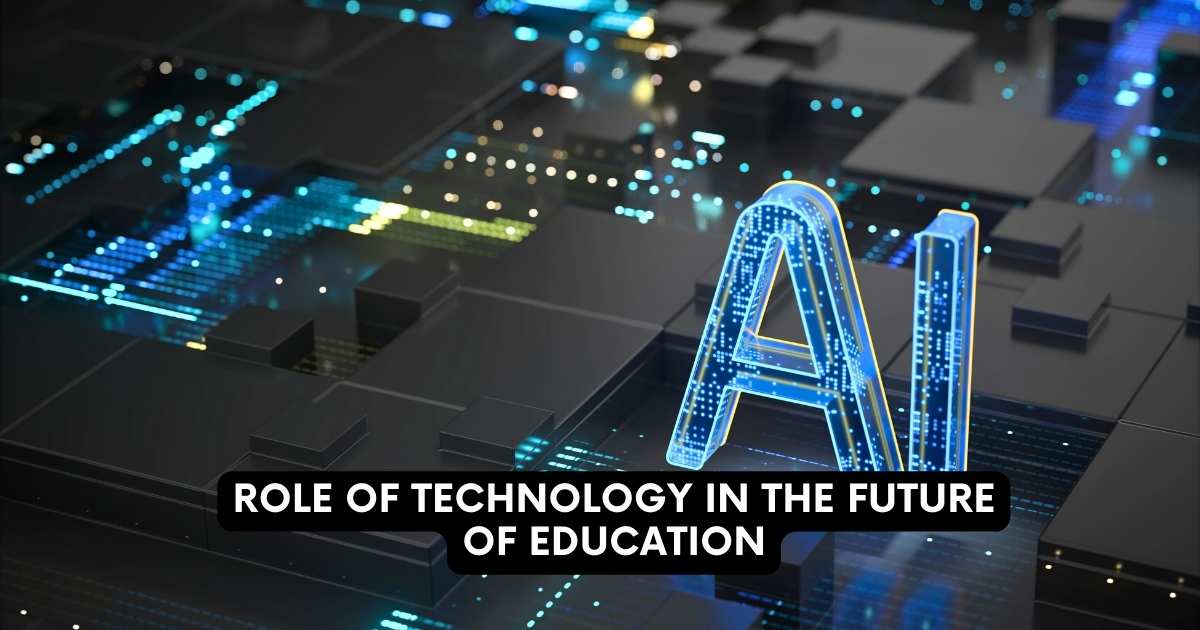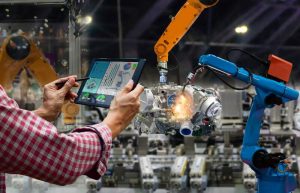In a rapidly evolving world shaped by technological advancements, education stands on the brink of a transformation that is set to redefine the learning landscape. Read this article to know what is the Role of Technology in the Future of Education.
The conventional approach to education, which relied heavily on rote memorization and fact regurgitation, is fast becoming outdated in an era where information is effortlessly accessible.
The future of education hinges on cultivating the skill of information navigation and utilization, empowered by technology as a pivotal catalyst.
- Shift from Rote to Resourceful Learning
Traditional education models are giving way to a more dynamic paradigm that centers on equipping students with the tools to effectively locate and harness information.
In this journey, technology plays a pivotal role by furnishing students with an extensive repository of knowledge and tools to dissect and synthesize data. As technology permeates every aspect of our lives, its impact on education becomes more pronounced.
- Democratizing Education
The omnipresence of mobile devices such as smartphones and tablets is revolutionizing how students and teachers interact with learning materials.
Social media platforms, such as Facebook and Twitter, are fostering collaboration and communication among educators and learners. Meanwhile, online learning platforms like Coursera and edX are democratizing education, granting students access to world-class courses, often free of charge.
- Challenges to Address
Embracing technology in education is not without its challenges.
The digital divide, which delineates those with technology access from those without, poses a significant hurdle. Additionally, educators require proper training to harness technology’s potential effectively.
Addressing these issues entails investment in technology infrastructure and robust teacher training programs, bridging the gaps and leveling the playing field.
- Benefits of Technological Integration
Despite challenges, the rewards of incorporating technology into education are substantial. These include:
- Personalized learning takes center stage, enabling students to progress at their pace and concentrate on areas demanding more attention.
- Learning also takes on a new dimension, engaging students through multimedia resources and interactive simulations.
- Technology imparts essential skills, including digital literacy and collaboration, preparing students for a rapidly changing workforce.
- Balancing Innovation with Tradition
While technology offers unprecedented opportunities, maintaining a balance between digital tools and traditional methods remains vital.
Also Read: 7 Trends and Innovations Shaping the Future of College in India
Hands-on experiences and face-to-face interactions should harmonize with technological integration, ensuring a well-rounded education that nurtures both skills and character.
- A Glimpse into the Future
Technology’s ascendancy in education shows no signs of slowing down.
Moore’s Law predicts an increase in technological power at lower costs, paving the way for even more potent and affordable innovations.
Therefore, artificial intelligence and machine learning are poised to personalize education further, offering tailored feedback and interventions.
- AI: The Shaping Force of Tomorrow’s Education
Artificial Intelligence (AI) is a game-changer in education.
It has the potential to personalize learning, automate assessments, identify at-risk students, and provide real-time feedback.
AI has the potential to empower teachers by suggesting effective lesson plans, streamlining administrative tasks, and predicting student outcomes.
AI’s impartial assessments could promote inclusivity and equitable learning, fostering a future where all students receive a quality education.
Conclusion
Education stands on the cusp of a revolution. As technology intertwines with learning, educators and students alike must embrace this paradigm shift.
By adopting new ideas, experimenting with technology, and harnessing AI’s potential, we can co-create an innovative and effective education ecosystem.
The future beckons, and with it, the promise of preparing students for success in the 21st century and beyond.
AI-Powered Education at SGT University: Pioneering the Future
SGT University stands at the forefront of the AI revolution in education with its Bachelor of Computer Applications (Artificial Intelligence & Machine Learning) or BCA in AI & ML program.
Fueled by a high-speed computer lab backed by NVIDIA, and featuring centers of excellence in Apple iOS, and IBM Innovation, the university offers a comprehensive curriculum encompassing programming, AI, machine learning, and software engineering.
Students thrive in an ecosystem fostering internships, hackathons, and collaborations with industry experts.
Access to high-performance computing resources empowers large-scale experiments, complemented by a faculty passionately committed to research, teaching, and student mentorship.
With the fusion of cutting-edge facilities and expert guidance, SGT University – one of the best private universities in Gurugram – propels students into the AI-driven future.
References
- Cardona, Miguel A., Ed.D., et al. “Artificial Intelligence and the Future of Teaching and Learning.” U.S. Department of Education, May 2023.
- Molebash, Philip. “Technology and Education: Current and Future Trends.”




